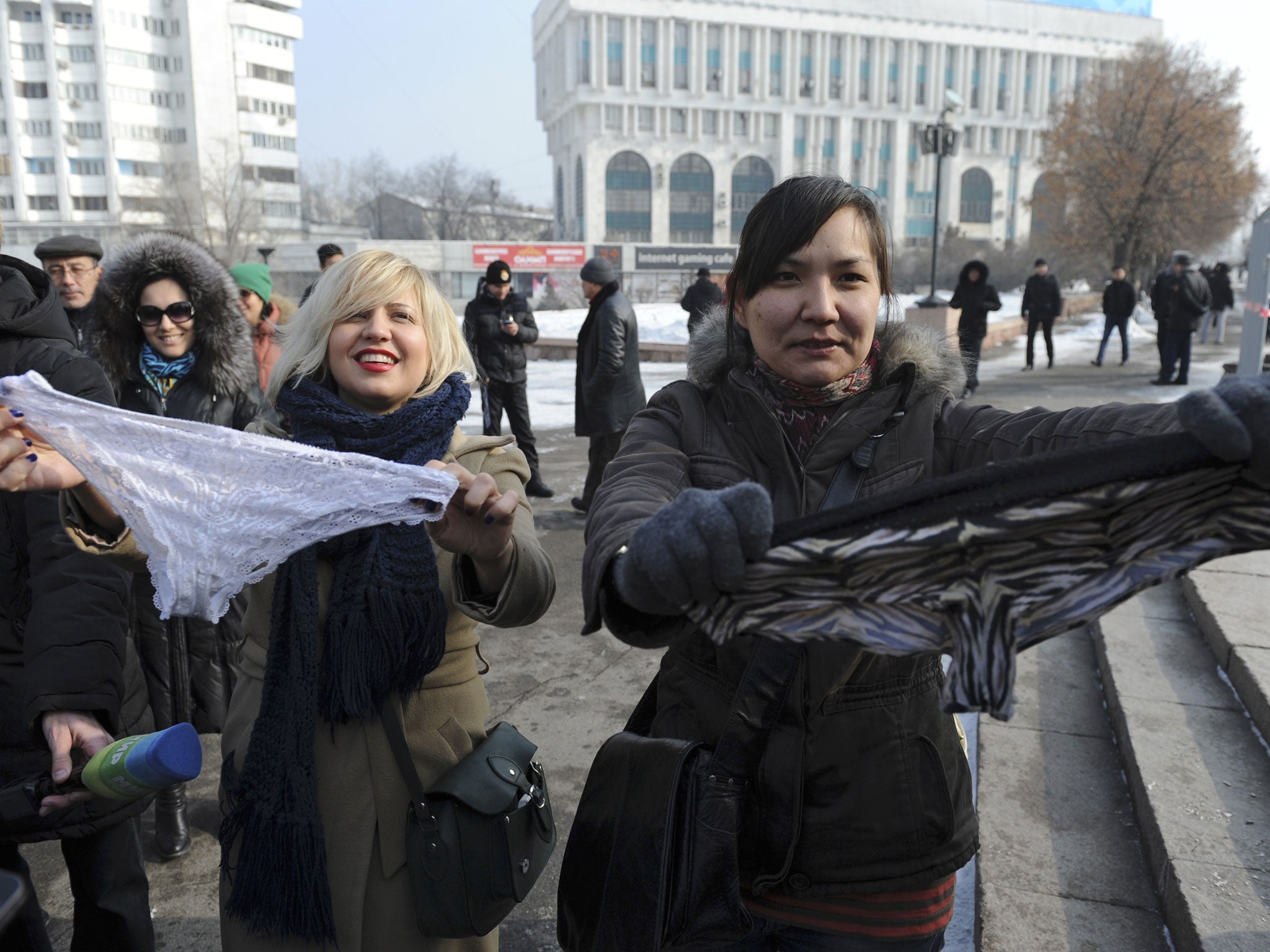Kazakhstan: Lace underwear ban sees dozens of women arrested in street protest
The women were protesting against a ban by the Eurasian Economic Commission

Your support helps us to tell the story
From reproductive rights to climate change to Big Tech, The Independent is on the ground when the story is developing. Whether it's investigating the financials of Elon Musk's pro-Trump PAC or producing our latest documentary, 'The A Word', which shines a light on the American women fighting for reproductive rights, we know how important it is to parse out the facts from the messaging.
At such a critical moment in US history, we need reporters on the ground. Your donation allows us to keep sending journalists to speak to both sides of the story.
The Independent is trusted by Americans across the entire political spectrum. And unlike many other quality news outlets, we choose not to lock Americans out of our reporting and analysis with paywalls. We believe quality journalism should be available to everyone, paid for by those who can afford it.
Your support makes all the difference.30 women were arrested in Kazakhstan on Sunday, yelling “freedom to panties!” and wearing lace underwear on their heads.
Rather than having an unnatural attachment to their lucky underpants, the women were protesting against a trade ban on the sale of lacy lingerie in Kazakhstan Russia and Belarus.
The ruling will see any underwear containing less than 6 per cent cotton banned from being made or imported into the countries.
The demonstration followed a protest on Sunday against a 19percent devaluation of the Kazakhstani tenge currency.
The ban has struck a chord in societies where La Perla and Victoria's Secret are panty paradises compared to Soviet-era cotton underwear, which was often about as flattering and shapely as curtains.
The ban was first outlined in 2010 by the Eurasian Economic Commission, which regulates the customs union, and will be enforced from 1 July, with officials citing that lace does not absorb enough moisture.
But a consumer outcry against it already is reaching a fever pitch.
Others have laughed off the panty ban, seeing it as yet another attempt to add regulations and controls to bureaucracy in the three countries.
"As a rule, lacy underwear is literally snatched off the shelves," said Alisa Sapardiyeva, the manager of DD-Shop, a lingerie store in Moscow.
"If you take that away again, the buyer is going to be the one who suffers the most," she warned.
According to the Russian Textile Businesses Union, more than $4 billion dollars (£2.4bn) worth of underwear is sold in Russia annually, and 80 per cent of the goods sold are foreign made.
Analysts estimate that 90 per cent of lacy underpants would disappear from shop shelves, if the ban goes into effect this summer as planned.
The Eurasian Economic Commission declined to comment on Monday, saying it was preparing to issue a statement about the underwear ban.
"I think [the girls]... will still have the opportunity to wear it (synthetic underwear) whether you can buy it in Russia or not," said 22-year-old Muscovite Trifon Gadzhikasimov, noting that most of his friends travel abroad regularly.
"I think this is just another silly law that shows the ineffectiveness of our government."
Additional reporting by PA
Join our commenting forum
Join thought-provoking conversations, follow other Independent readers and see their replies
Comments